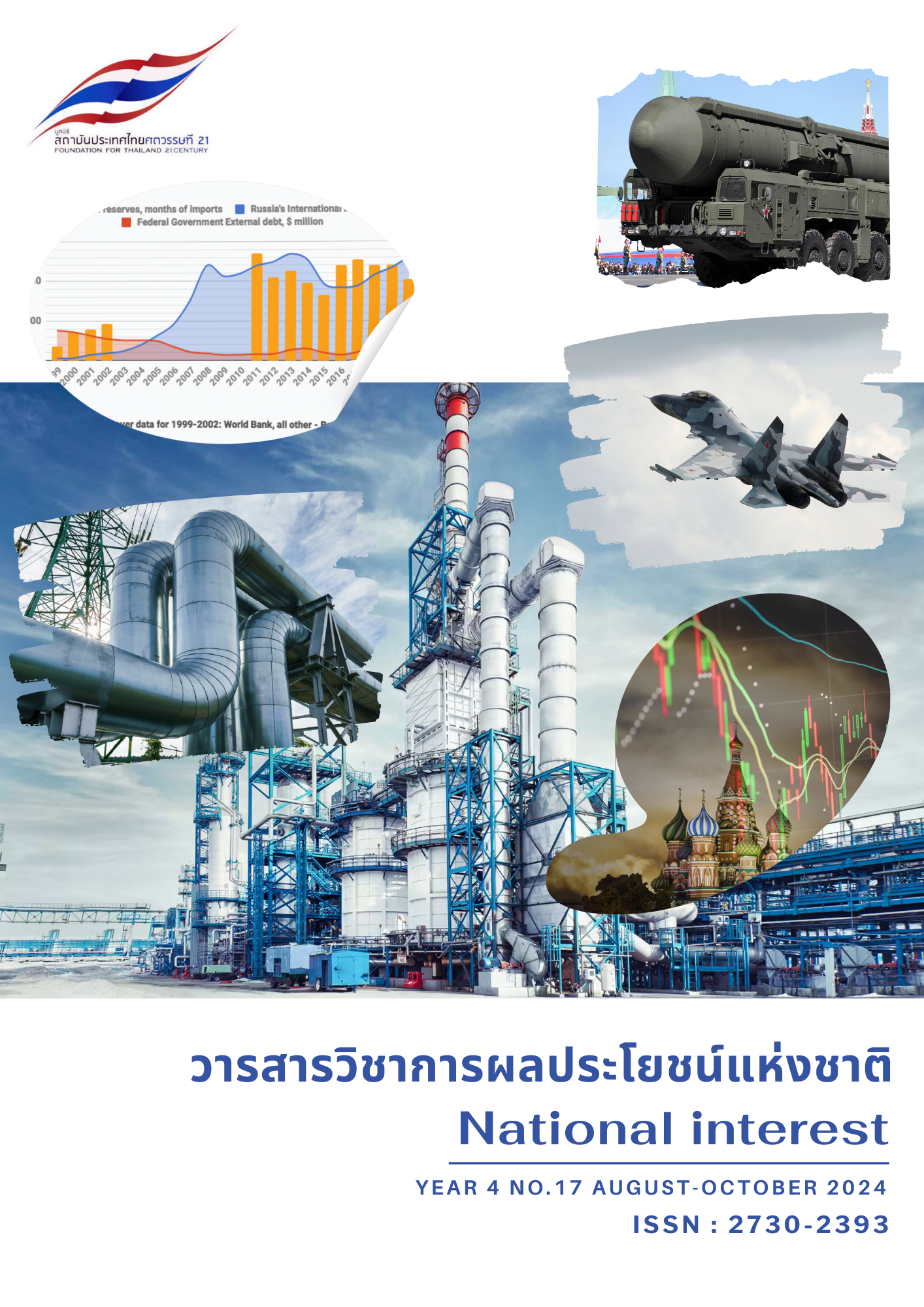The Urgent Need for Global Pandemic Legislation to Protect from Future Pathogens
Main Article Content
บทคัดย่อ
Pandemics have profound implications for global health, economies, and social structures, requiring urgent reforms in global health governance. The COVID-19 pandemic highlighted significant gaps in preparedness, inequity in resource distribution, and the limitations of voluntary frameworks like the International Health Regulations (IHR). This paper explores the necessity of implementing binding global pandemic legislation that addresses early detection, rapid response, equitable resource allocation, and legal enforcement mechanisms. Case studies of previous pandemics, including COVID-19, Ebola, and HIV/AIDS, provide lessons for crafting this legislation. By analyzing the deficiencies in current systems and proposing actionable legal solutions, this paper outlines how pandemic legislation can serve as a safeguard against future global health crises.
Article Details

อนุญาตภายใต้เงื่อนไข Creative Commons Attribution-NonCommercial-NoDerivatives 4.0 International License.
วารสารวิชาการผลประโยชน์แห่งชาติ ภายใต้ Creative Commons Attribution-NonCommercial-NoDerivatives 4.0 International License วารสารอนุญาตให้มีการเข้าถึงหรือเผยแพร่งานทางวิชาการได้โดยไม่มีค่าใช้จ่ายหรือมีการลงทะเบียน เพื่อเป็นการสนับสนุนการแลกเปลี่ยนความรู้ ขอบข่ายครอบคลุมงานวิชาการด้านภูมิรัฐศาสตร์ ภูมิเศรษฐศาสตร์ และนวัตกรรมผู้ใช้สามารถแบ่งปัน คัดลอก และกระจายข้อมูลทั้งหมดที่ตีพิมพ์ใน วารสารวิชาการผลประโยชน์แห่งชาติ ในรูปแบบหรือสื่อใดก็ตามตามเงื่อนไขต่อไปนี้:
การอ้างอิง — อนุญาตให้นำผลงานไปใช้ ทำซ้ำ แจกจ่าย หรือดัดแปลงงานนั้นได้ แต่ต้องให้เครดิตที่มาของเจ้าของผลงานนั้น ซึ่งถ้ามีการใช้ผลงานนั้นโดยไม่มีเครดิตชื่อเจ้าของผลงานกำกับ จะต้องทำการขอนุญาตเจ้าของผลงานก่อน
ไม่ใช้เพื่อการค้า — อนุญาตให้นำผลงานไปใช้ ทำซ้ำ แจกจ่าย หรือดัดแปลงงานนั้นได้ แต่ไม่สามารถใช้ผลงานหรือบทความเพื่อวัตถุประสงค์ทางการค้าได้
ไม่สามารถดัดแปลง — อนุญาตให้นำผลงานไปใช้ ทำซ้ำ แจกจ่าย ผลงานชิ้นนั้นได้ แต่ห้ามดัดแปลงงาน เว้นแต่ว่าจะได้รับการอนุญาตจากเจ้าของผลงานก่อน
เอกสารอ้างอิง
COVID-19 Challenge? Revisiting the International Health Regulations to Prepare for Future
Threats. JAMA, 324(4), 327-328.
Fidler, D. P. (2020). The Future of the World Health Organization: What Role for International
Law? The American Journal of International Law, 114(3), 1-10.
_____ Fidler, D. P. (2005). From International Sanitary Conventions to Global Health Security: The
New International Health Regulations. Chinese Journal of International Law, 4(2), 325-392.
Gostin, L. O., & Katz, R. (2020). "The International Health Regulations: The Governing
Framework for Global Health Security." JAMA, 324(4), 1-2.
Hoffman, S. J. (2010). Strengthening Global Health Diplomacy in Canada’s Foreign Policy: Lessons
from the International Health Regulations. Global Health Governance, 3(2), 1-20.
Horton, R. (2021). COVID-19 and the Failure of Global Health Security. The Lancet, 397(10273), 393.
Kamradt-Scott, A. (2018). The Politics of Global Health Security. The Routledge Handbook of
Global Health Security, Routledge, 60-70.
Kickbusch, I., et al. (2021). Global Health Diplomacy—Breaking Down Barriers to Collective
Action. Global Health Action, 14(1), 1-5.
Moon, S., et al. (2015). Will Ebola Change the Game? Ten Essential Reforms before the Next
Pandemic. The Lancet, 386(10009), 2204-2221.
United Nations General Assembly. (2020). Transforming Our World: The 2030 Agenda for
Sustainable Development. UN, 23-24.
World Health Organization. (2021). WHO Director-General’s Opening Remarks at the 148th
Session of the Executive Board. WHO, https://www.who.int/director-general/speeches


